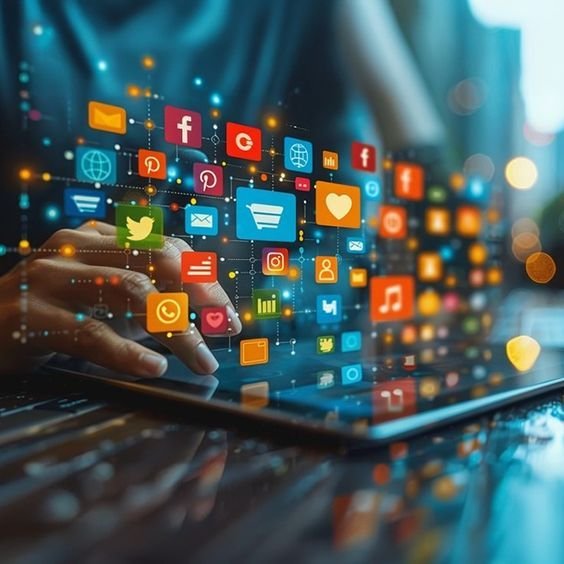The Pocket Revolution: How Smartphones Reshaped Our World:
From humble beginnings as clunky communication tools to the sleek, indispensable companions we know today, smartphones have orchestrated a revolution unlike any other in modern history. More than just phones, they are powerful pocket-sized computers that have fundamentally altered how we connect, work, learn, consume information, and navigate daily life. Their impact is pervasive, profound, and still unfolding.
From Brick to Brain: A Brief Evolution
The journey began with devices like the IBM Simon (1994), offering rudimentary PDA functions. The real paradigm shift arrived with Apple’s iPhone in 2007, introducing the multi-touch interface and the App Store concept. Android followed swiftly, democratizing the platform. Suddenly, a single device integrated a phone, camera, music player, GPS, web browser, and, crucially, an ever-expanding universe of applications.
The Transformative Impact:
-
Communication Reimagined: Smartphones demolished barriers. Instant messaging, social media apps, and video calls made communication instantaneous, global, and often free. Texting evolved into rich multimedia conversations. We’re constantly connected, for better or worse.
-
Information at Your Fingertips: The internet ceased to be desktop-bound. Answers to any question, news from across the globe, translations, maps, and encyclopedic knowledge became instantly accessible. This democratization of information empowered individuals but also raised challenges around misinformation and digital literacy.
-
The App Ecosystem: This is the true engine of the smartphone revolution. Millions of apps cater to virtually every human need and desire:
-
Productivity: Email, document editing, project management, banking.
-
Entertainment: Streaming music/video, gaming, e-books, social media.
-
Lifestyle: Fitness tracking, food delivery, ride-hailing, online shopping, smart home control.
-
Learning: Educational apps, online courses, language learning tools.
-
Creativity: Photo/video editing, music production, digital art.
-
-
The Digital Swiss Army Knife: They replaced numerous standalone devices: cameras, GPS units, MP3 players, flashlights, calculators, alarm clocks, and even wallets (with mobile payments). This consolidation offers unparalleled convenience.
-
Economic Engine: Smartphones fueled entire industries – app development, mobile advertising, e-commerce, gig economy platforms (Uber, Deliveroo). They created new job markets and transformed existing ones, enabling remote work and mobile entrepreneurship.
-
Social Fabric & Culture: Social media platforms accessed primarily via smartphones reshaped how we form relationships, share experiences, consume news, and engage in activism. They’ve created new forms of community but also amplified issues like social comparison, cyberbullying, and echo chambers.
The Double-Edged Sword: Challenges and Concerns
This revolution isn’t without its downsides:
-
Addiction & Mental Health: Constant connectivity can lead to addiction, anxiety, sleep deprivation, and reduced attention spans. The pressure of social media can negatively impact self-esteem, particularly among younger users.
-
Privacy Erosion: Smartphones collect vast amounts of personal data – location, browsing habits, app usage. This raises serious concerns about surveillance, data breaches, and the misuse of information by corporations and governments.
-
The Attention Economy: Apps are designed to be maximally engaging, often at the expense of our focus and well-being. The constant stream of notifications and information can be overwhelming.
-
Digital Divide: While widespread, access to the latest smartphones and reliable data plans remains unequal, exacerbating existing social and economic disparities.
-
Distraction & Safety: Smartphone use while driving or walking poses significant safety risks. Distraction in social settings can erode face-to-face interaction.
The Future: Beyond the Rectangle
Smartphone technology continues to evolve rapidly:
-
Foldable Displays: Offering larger screens while maintaining portability.
-
Enhanced AI: More personalized experiences, smarter assistants, and advanced computational photography.
-
5G & Beyond: Ultra-fast connectivity enabling real-time cloud computing, advanced AR/VR applications, and seamless IoT integration.
-
Health Monitoring: More sophisticated sensors for tracking vital signs and potentially aiding in preventative healthcare.
-
Integration with Wearables & AR/VR: Smartphones acting as hubs for a broader ecosystem of immersive and wearable tech.
Conclusion
The smartphone is more than a gadget; it’s a cultural and technological phenomenon that has woven itself into the fabric of modern existence. It has empowered individuals, transformed industries, and connected the globe in unprecedented ways. Yet, its pervasive influence demands mindful usage and ongoing societal discussion about privacy, well-being, and equitable access. As technology races forward, the smartphone remains the central node in our digital lives – a pocket-sized portal to the world, embodying both incredible potential and significant responsibility. The revolution it started is far from over; it’s simply evolving in the palm of our hands.

